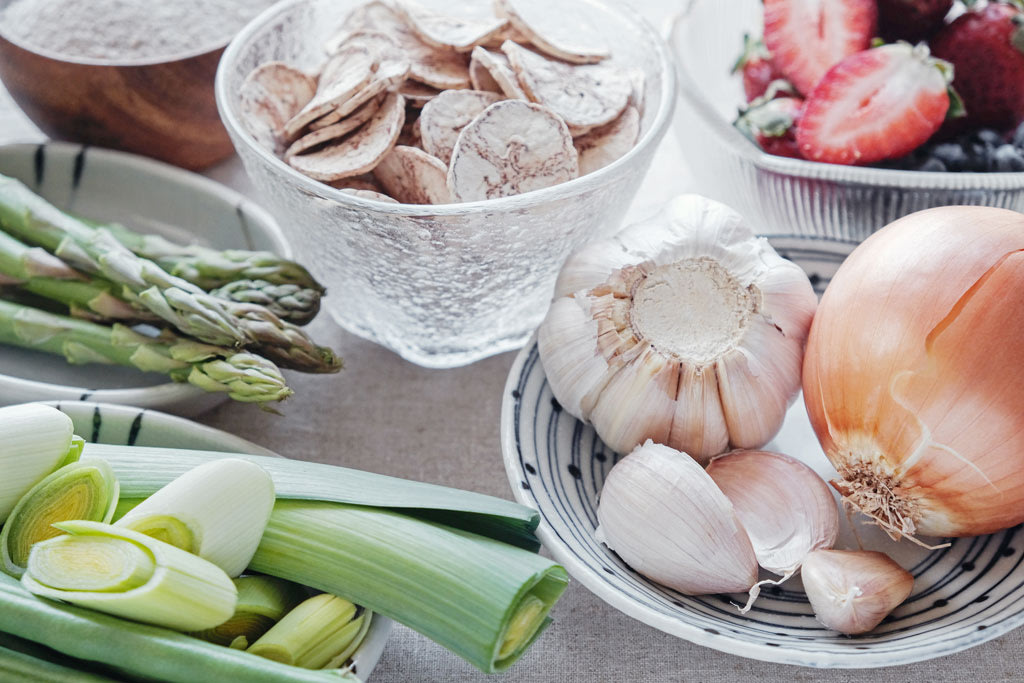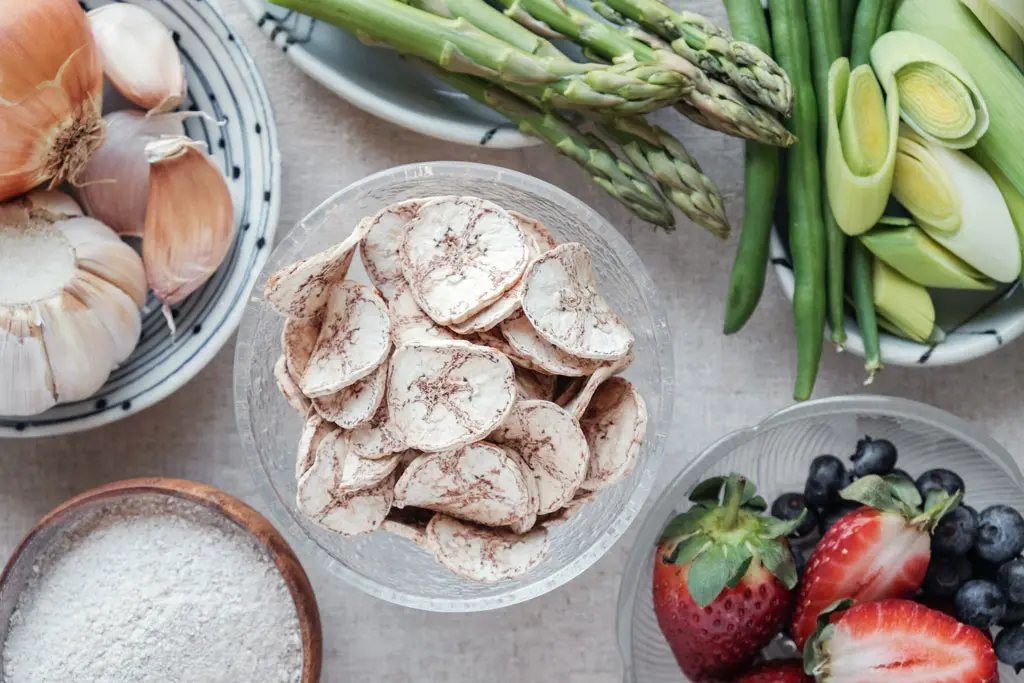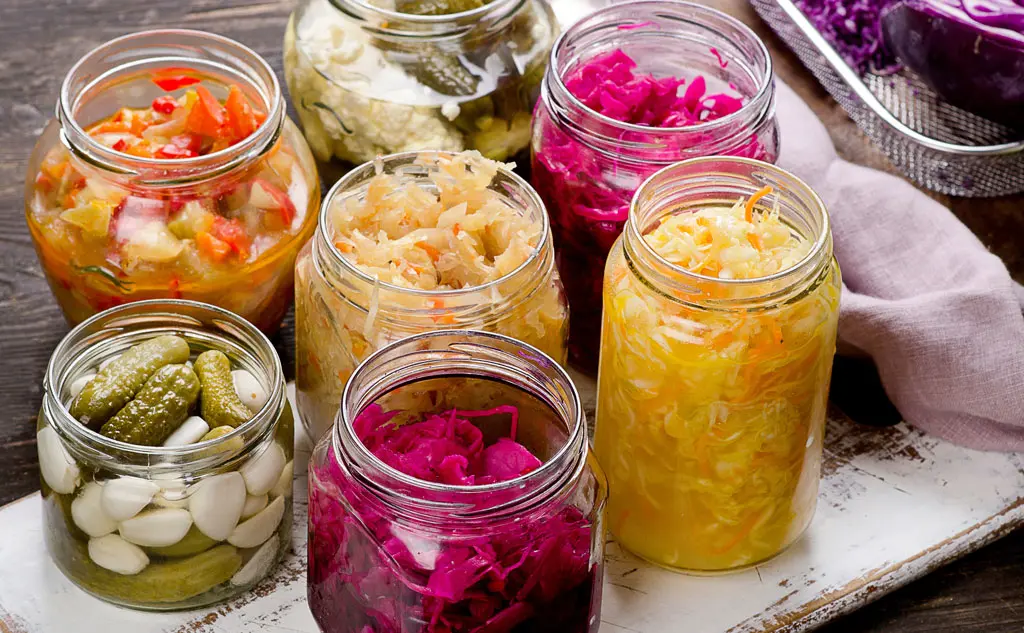What Are Prebiotics And Do We Need Them?

October 18, 2019

Your digestive system does a lot of work for your body.
It breaks down food and absorbs nutrients, creating the energy we need to function, work out and perform at our best every day.
That’s why maintaining gut health is an important part of your overall wellbeing. There’s also increasing scientific evidence that suggests you can support your gastrointestinal tract by eating certain foods, known as prebiotics.
You may have already heard of probiotics and know they’re good for your gut, but what exactly are prebiotics, and are they beneficial for digestive health? Think of your digestive system as an ecosystem — prebiotics (along with probiotics) help maintain that environment and keep your gut health in balance.
Find out:
What is a prebiotic?
A prebiotic is a type of non-digestible fibre that supports and stimulates the growth of “good” bacteria in the gut.
The digestive system is lined with large numbers of bacteria, which are natural microbiome that support your digestion, immune system and brain.
Everyone’s microflora is unique and is made up of a combination of “good” and “bad” bacteria based on what you eat, your lifestyle and other environmental factors. It is healthy to have a variety of bacteria in your gut, but sometimes the balance can be off — and this can lead to health problems.
Making sure you have a healthy and diverse range of organisms in your gut environment is very important for your health and can help your digestion.
Prebiotics are naturally found in a range of fruits, legumes, nuts, grains and vegetables. For this reason, eating a diet which includes lots of high-fibre foods can provide you with sufficient prebiotics.
However, a 2018 study by the Australian National Health and Medical Research Council shows that most people do not reach the recommended intake of fibre, which is 25-30g per day.
On top of that, stress, alcohol consumption and eating poorly can affect the balance of bacteria in your gut.
All of these factors contribute to the growing interest in prebiotics and how to best look after gut health.

Why would I need more prebiotics?
If the scales have tipped in favour of the “bad” bacteria, prebiotics can help by encouraging more of the good microflora to grow.
If you’re experiencing an imbalance in gut bacteria, symptoms may include:
Irregular bowel movements
Stomach issues
Weight fluctuation
Poor skin health
Food intolerances
Fatigue

What are the benefits of prebiotics?
By supporting the growth of good bacteria, prebiotics help to naturally increase the amount of health-promoting microflora, rather than disease-promoting pathogens, especially in the large intestine.
A study published in 2007 by the Vrije Universiteit Amsterdam, Netherlands found that eating fibre-rich foods could help reduce inflammation and prevent colon cancer.
The benefits of prebiotics may include:
Improved digestion
Relief from the symptoms of irritable bowel syndrome (IBS)
Relief from lactose intolerance symptoms
Improved mood and mental health
Reduced disease risk
What’s the difference between prebiotics and probiotics?
Many people get prebiotics and probiotics confused. While they can both help promote a healthy gut environment, they do have different roles.
If you think of your digestive environment as a garden, probiotics would be the seeds planted in the soil and prebiotics would be the fertiliser to help the seeds grow.
Probiotics are live bacteria that add good intestinal flora to your gut. They include Lactobacillus acidophilus, Bifidobacterium bifidum (lactobacilli and bifidobacteria) in yoghurt and fermented milk drinks.
Prebiotics are fuel for probiotics, and can stimulate the growth of good bacteria already present in the gut.

Food sources of probiotics
Probiotics can be found in some fermented foods, which grow good bacteria when they go through the fermentation process. While the number of bacteria they contain will be dependent on the way they’re manufactured and fermented, foods and drinks with probiotic qualities may include:
Yoghurt
Kombucha
Kimchi
Tempeh
Sauerkraut
Sourdough bread
Cheese
Fermented milk drinks

Food sources of prebiotics
Prebiotics can be found in food such as:
Asparagus
Cereals
Onion
Soybeans
Dragonfruit
Jerusalem artichoke
Chicory root
Garlic
Leeks
Banana
It’s ideal to combine prebiotics with probiotics, and eating a range of foods will ensure you get the best of both worlds.
However, you could also try adding a prebiotic or probiotic supplement to your diet. Talk to your doctor for more advice on whether or not this is right for you.
You can easily include prebiotics in your diet
Making sure you eat a diet rich in fibrous foods will mean you’re naturally consuming prebiotics, and looking after your intestinal health – which can promote a better sense of wellbeing. Try to incorporate fibre into every meal to help you reach the recommended intake of 25-30g of fibre per day.
Whole food sources are always the best option since they contain a range of other essential nutrients – for instance, make a healthy smoothie rather than juice, as the fibre in smoothies is where you will find the prebiotics.
Ensure you’re eating fresh food too, as it’s likely to contain higher levels of prebiotics and probiotics — giving your body the support it needs and allowing you to function at your best.

A more empowered you starts with Sweat, and our editorial team is here to bring you the latest fitness tips, trainer recommendations, wellbeing news, nutritional advice, nourishing recipes and free workouts.
* Disclaimer: This blog post is not intended to replace the advice of a medical professional. The above information should not be used to diagnose, treat, or prevent any disease or medical condition. Please consult your doctor before making any changes to your diet, sleep methods, daily activity, or fitness routine. Sweat assumes no responsibility for any personal injury or damage sustained by any recommendations, opinions, or advice given in this article.
Nutrition